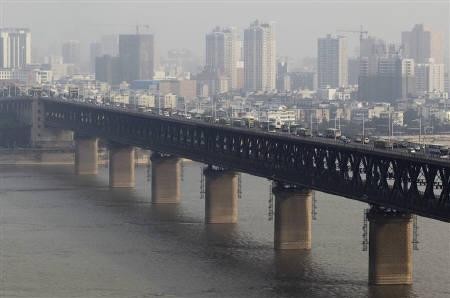The governments of Jiangxi, Hunan and Hubei provinces recently received the Yangtze city cluster plan, which aims to develop the group of cities along the river’s middle reaches.
The National Development and Reform Commission (NDRC) announced the distribution on Thursday, adding that relevant departments covered by the State Council are also some of the plan's recipients.
The strategy involving the three provincial governments, as well as 31 cities, is a call for the local authorities to support the boosting of the Yangtze River economic belt.
The plan, which covers a 317,000-kilometer area, was around two years in the making. The State Council approved it on March 26.
According to the Department of Regional Economy deputy director Yu Hejun, the city cluster offers great potential.
Yu said: "In a period where China's economy is facing great pressure, the city clusters along the middle reaches of the Yangtze River are expected to maintain an economic growth rate of more than 9 percent. This area is likely to become a new source of China's economic growth."
Most cities to be included in the projects are underdeveloped, as stated by Shen Yufang, a Ministry of Housing and Urban-Rural planning advisory committee member.
Shen further pointed out the importance of building intercity infrastructures in lieu of making the plan a reality.
"The building of such a network could be done step by step. The Chinese government could build the main transport lines, and then leave the local governments to perfect the network with branch line projects," Shen said, adding that the government must not rush into it and instead handle it in an orderly manner.
On the other hand, Li Guoping, Peking University's Capital Development Institute president, said that high-end industries are also urgently needed.
"In sparsely populated areas such as western China, it might be difficult for private companies who participate in such projects to make a profit. But around the central areas such as Jiangxi, where the population is dense and opportunities are considerable, private capital could play a much more important role in such projects," Li explained.
Both Li and Shen told the statements to the Global Times on Thursday.



























